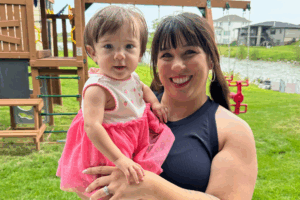Have you ever gone to your doctor’s office and thought, “I have several questions I want to ask” and then gone home and realized you forgot to ask them? This happens to many people for multiple reasons. You may feel anxious during your appointment. You may feel uncomfortable asking a question. Or you may feel overwhelmed, answering so many questions about your health that you may simply forget the questions you wanted to ask. Whatever your reason is, here is what you can do to better self-advocate at your next appointment.
Prepare to Answer Basic Questions First
Knowing what to expect up front can help alleviate some anxieties. So, this is the basic process to expect during a doctor’s visit.
- In today’s world, you’ll start with COVID-19 questions, insurance information, emergency contacts and verifying your address.
- You’ll go to the scale. This part always makes me nervous because I don’t want to look.
- Your vitals are taken—blood pressure, temperature and pulse.
- You’ll review your medications and how you take them. It’s very important that you also share information on vitamins, natural supplements and any over-the-counter items you take. This helps your doctor make sure nothing interacts.
It’s a lot to go through, and all of this can occur before you get to the reason for your visit. While it may feel overwhelming now, there are steps you can take to be more confident and get the most out of your visit.
You & Your Doctor Are a Team
You both have a common goal—to take care of your health. To achieve that goal, you have to work together. This starts with being honest and sharing information with your healthcare provider. By being forthcoming, it helps them examine, diagnose and treat the problem. If you feel too uncomfortable sharing information, the doctor can’t do their job, let alone offer you optimal care.
Here’s what to do to avoid “losing your voice” when the white coat walks into the room:
- Prepare a list of questions before your visit. Write them down and bring that list with you to the doctor’s office. Having that list to reference will make sure you get all of your questions answered.
- Bring a friend or family member with you if you know you’re going to be overwhelmed. They can help you listen and ask the questions. Having a support person with you can be very comforting during a doctor’s visit.
- Be patient while the receptionist and nurse ask you questions. Your answers will be passed along to the doctor. This information also helps correctly pay for your bill so you don’t have to worry about it later.
- Write down the information you receive during the appointment. You can bring a notepad or use the notes app on your phone. Taking notes will help you remember everything that was said during the visit, including instructions for a treatment plan.
- Call back or send a message through your patient portal if you have questions after your visit. We want you to follow your care plan, so we’re happy to clear up any confusion. You can only follow our recommendations if you fully understand what we suggested.
These tips will help to make you feel empowered the next time you step into a doctor’s office. After all, you are your best advocate! If you or someone you know could benefit from a professional consultation, take our free, confidential mental health screening online from the comfort of your home today.

Stacy Waldron, PhD
Licensed Psychologist, Bryan Medical Center Counseling Center
Dr. Stacy Waldron provides treatment for individuals of all ages across the lifespan and specializes with adolescents and adults. She offers individual and family therapy to help clients with stress, anxiety, mood disorders, life transitions and chronic pain. This includes helping individuals with stress management, assertiveness training, communication and problem solving skills as well as relaxation training. She also provides psychological assessments that include bariatric surgery evaluations, spine surgery, and spinal cord stimulator evaluations.
Waldron earned her doctorate in counseling psychology from the University of Southern California in Los Angeles. She serves on the Board of Psychology for the State of Nebraska, the Board of Directors for the Midwest Pain Society, and the Association of State and Provincial Psychology Boards.









